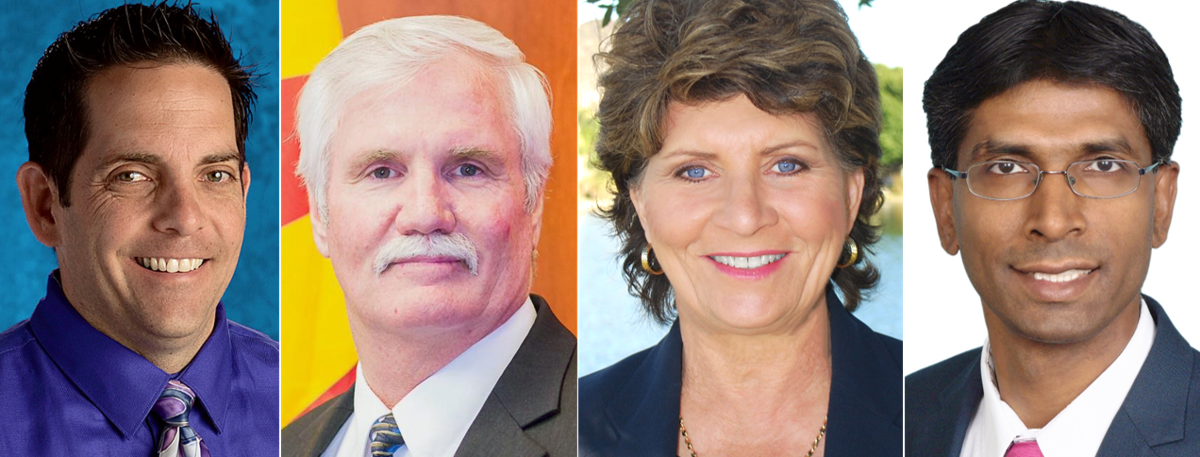Three groups have spent just over $36,000 to try to influence Republican voters in the election of state legislators in District 14.
With state Reps. David Gowan and David Stevens stepping down, this wide-open district has a crowded Republican primary with four candidates and two Democrats waiting to challenge the winners in the general election.
About 40 percent of registered voters in District 14 are Republicans, 32 percent are independents or didn’t select a party, and 27 percent are Democrats. The district stretches from the east edge of Tucson, south to Douglas and north past Clifton in Greenlee County.
The dollars flooding into the race are considered “dark money,” meaning political spending by outside groups that don’t disclose the source of the money.
Statewide, $478,000 in “dark money” has been spent on legislative races during the early voting period, according to the Arizona Center for Investigative Reporting. Primary Election Day is Tuesday, Aug. 30.
The Washington, D.C.-based American Federation for Children Inc. spent the most “dark money” in Arizona so far, with $213,000 mostly going to help Republicans in primary fights.
The group, which supports a voucher system that would make taxpayer dollars travel with students to any school, including private schools, spent $205,000 during the 2014 election cycle.
In District 14 the group has spent $27,717 on mailers with messages supporting Republican House candidates Becky Ann Nutt and Anthony Sizer and Republican Sen. Gail Griffin.
The mailers were a surprise to Becky Ann Nutt, who learned about them when someone sent her a picture asking about them.
She’s running as a Clean Elections candidate, which means she can’t accept money from special interest groups as part of the rules for receiving public funds for her campaign.
Nutt said the group probably is supporting her because she supports school choice. Her children have attended home school, as well as public, private, and charter schools, and parents should be able to choose the school that’s right for them, she said.
Her education platform also includes finding ways to better fund schools and improve teacher pay, although she doesn’t have specific policy recommendations, saying she’d take an in-depth look at the state budget first. She said blanket policies are a bad idea because what works for one family may not work for another, and what works for urban schools may not work for rural ones.
Dennis Barger, a Republican who is running for a House seat but who was not supported by American Federation for Children money, said he’s not sure how much the mailers will influence the outcome of the primary election.
Barger is a principal at a Vail School District school that used to be a charter school.
“I’m not just someone who has an opinion about education; it’s what I do every day,” he said.
Last year the Legislature changed the rules to say charter schools may only be operated by nonprofit or for-profit groups, not by school districts. The top-rated Vail School District lost more than $2 million in state funding due to the change.
The Legislature also has made regular efforts to expand the state’s voucher system, called empowerment scholarships, and has grown the qualified population to include children with special needs, children who attend failing public schools, children who live on reservations, foster children, and military children.
This year an effort to extend vouchers to low-income children didn’t fly, but more expansion proposals likely are coming in the next session.
The most recent effort to expand the voucher system was a bad idea because it left open loopholes for private schools to game the system, Barger said. The funding would follow a student who leaves a public school, including charter schools. So a private school could eliminate kindergarten to ensure all new students bring state aid money from public schools, he said.
If private schools want public dollars, they should play by the public rules, he said. That would include offering transportation, special education programs, state assessments, and public school boards for accountability, he said.
Republican House candidates Drew John and Anthony Sizer did not return a call seeking comment.





